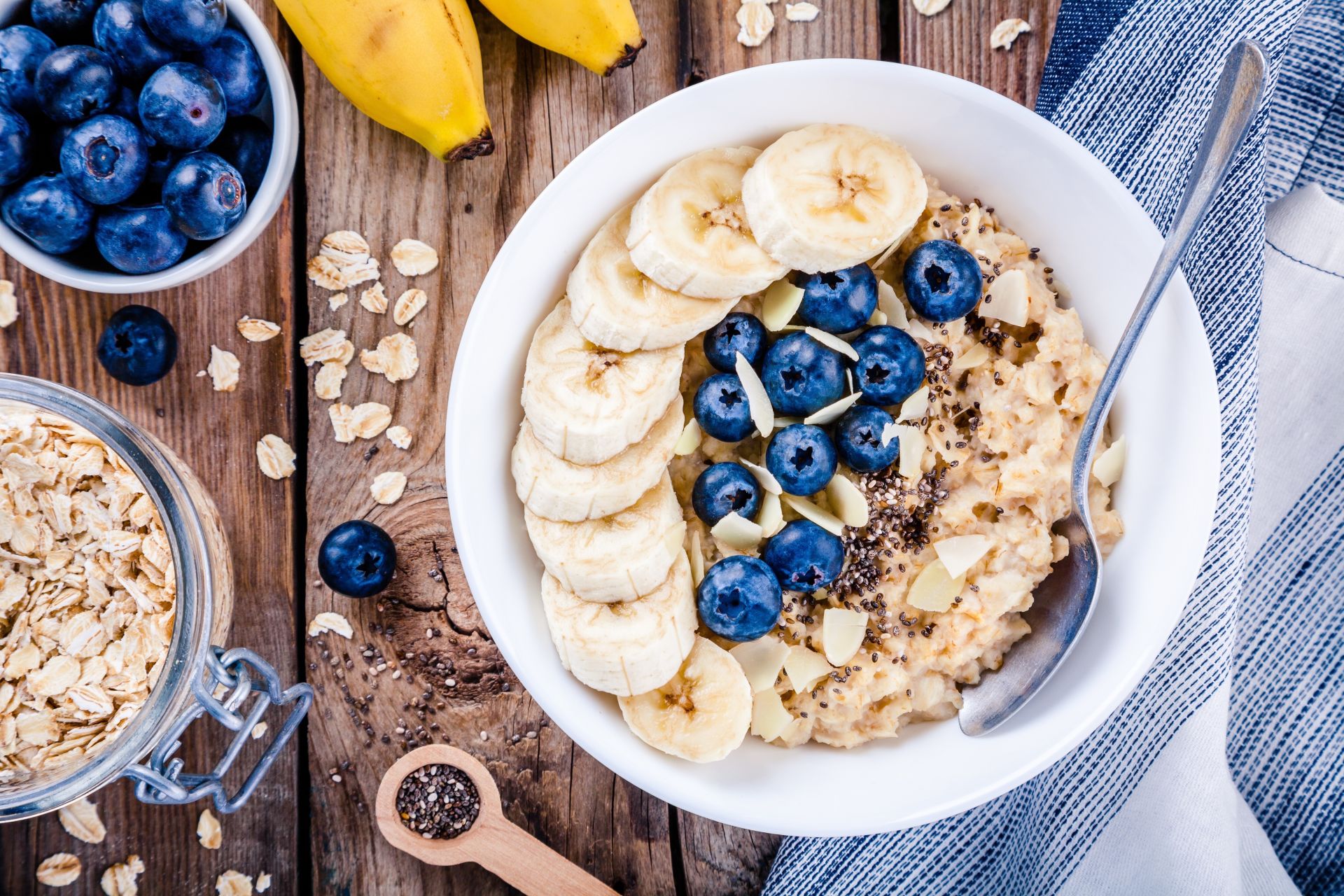Is breakfast the most important meal of the day?

Many people believe that breakfast is the most important meal of the day and should be eaten right after waking up to give the body the energy it needs to start the day actively. Some also believe that eating breakfast every day is absolutely necessary for maintaining good health and getting and maintaining a slim figure for a long time. So let's check whether breakfast is indeed the most important meal of the day.
- Breakfast - why is it so important for children and young people?
- Breakfast - what are the advantages of eating it for adults?
- Skipping breakfast - can it cause health problems?
- Breakfast - how to compose it?
- Breakfast - eat it or skip it?
Breakfast - why is it so important for children and young people?
In Mediterranean countries, breakfast has been recognized as one of the most important meals of the day. Regular consumption of breakfast is associated with many health benefits in children and adolescents, including:
-
a greater supply of macro- and micronutrients,
-
lower body mass index (BMI),
-
greater feelings of satiety,
-
lower incidence of food cravings,
-
higher cognitive performance,
-
improved academic performance,
-
better psychophysical well-being,
-
higher quality of life.
It has also been shown that regular breakfast consumption among children and adolescents leads to improved diet quality and better food choices, which can have a positive impact on mood, energy levels throughout the day and the process of forming proper dietary habits.
Breakfast - what are the advantages of eating it for adults?
Eating breakfast is associated with a significantly lower risk of developing cardiovascular diseases, including ischemic heart disease. It has been suggested that people who regularly eat breakfast are less likely to have elevated levels of LDL fraction cholesterol (so-called "bad" cholesterol), high blood pressure and reduced serum levels of HDL fraction cholesterol (so-called "good" cholesterol). Eating breakfast in the morning has a beneficial effect on blood glucose control in the afternoon and physical activity levels throughout the day. However, it is worth noting that of great importance for many metabolic parameters is what foods are included in the breakfast. Scrambled eggs in clarified butter and bacon with light bread will have a completely different effect on blood glucose and LDL fraction cholesterol levels, while wholemeal rye bread sandwiches with hummus and fresh vegetables will have a different effect.
Skipping breakfast - can it cause health problems?
Studies conducted in European countries have shown that 24-36% of men and 33-44% of women skip breakfast. Irregular breakfast consumption has a significant impact on body weight and metabolic parameters and can cause various health problems. Some studies have shown that people who skipped breakfast had higher mortality rates, higher cholesterol and blood glucose levels, and frequent health-risk behaviors compared to those who ate breakfast regularly. In addition, adolescents and adults who habitually skip breakfast were observed to have a higher body mass index (BMI). Skipping breakfast has been identified as an important determinant of an unhealthy lifestyle, which may promote other health-risk behaviors, such as alcohol consumption, smoking, overeating and physical inactivity. It has been suggested that irregular breakfast consumption may lead to a poor quality of life and chronic stress exposure, which in turn may increase the risk of future cardiometabolic diseases.
Breakfast - how to compose it?
Standard recommendations for healthy eating indicate that breakfast, as one of the most important meals of the day, should contain between 20 and 35% of the total daily energy content of the diet. When composing a healthy breakfast, it is advisable to follow the recommendations provided by means of a healthy eating plate. A healthy and nutritious breakfast should consist of fresh vegetables or fruits, whole-grain cereal products, healthy vegetable fats (including: olive oil, nuts, seeds, seeds) and products high in protein, such as, for example, low-fat dairy products (cottage cheese, country cheese, Skyr yogurt), legumes (lentils, beans, chickpeas), fish and lean poultry meat. A great example of a healthy breakfast is oatmeal with fresh fruit, nuts, seeds and high-protein natural yogurt, and wholemeal rye bread with lentil paste and fresh vegetables.

Breakfast - eat it or skip it?
Breakfast is undoubtedly an important meal of the day, but it does not necessarily have to be the most important one, as it depends on the purpose. A well-composed breakfast in the morning is particularly important in the diet of patients with insulin resistance and diabetes due to better glycemic control during the day and reduced risk of hypoglycemia. In addition, breakfast is an important meal of the day for all very lean people who want to increase muscle mass.
Eating breakfast regularly is also particularly important for professional and amateur athletes who train in the morning. A nutritious breakfast will provide valuable nutrients and energy to ensure that the body's exercise capacity is sufficiently high when performing high-intensity exercises or competing in competitions. Breakfast can be skipped only on days when the "train-high, sleep-low" strategy is implemented in endurance athletes with a high level of training, which implies performing exercise with low muscle glycogen content.
Sources:
-
Betts J.A., Chowdhury E.A., Gonzalez J.T., et al: Is breakfast the most important meal of the day? Proc Nutr Soc. 2016 Nov;75(4):464-474.
-
Ferrer-Cascales R, Sánchez-SanSegundo M, Ruiz-Robledillo N, et al.: Eat or Skip Breakfast? The Important Role of Breakfast Quality for Health-Related Quality of Life, Stress and Depression in Spanish Adolescents. Int J Environ Res Public Health. 2018 Aug 19;15(8):1781.
-
Sievert K., Hussain S.M., Page M.J., et al: Effect of breakfast on weight and energy intake: systematic review and meta-analysis of randomised controlled trials. BMJ. 2019 Jan 30;364:l42.
-
Chowdhury EA, Richardson JD, Holman GD, et al: The causal role of breakfast in energy balance and health: a randomized controlled trial in obese adults. Am J Clin Nutr. 2016 Mar;103(3):747-56.
-
Quatela A, Callister R, Patterson A, et al: The Energy Content and Composition of Meals Consumed after an Overnight Fast and Their Effects on Diet Induced Thermogenesis: A Systematic Review, Meta-Analyses and Meta-Regressions. Nutrients. 2016 Oct 25;8(11):670.
-
Slater T, Mode WJA, Hough J, et al: Effect of the perception of breakfast consumption on subsequent appetite and energy intake in healthy males. Eur J Nutr. 2022 Apr;61(3):1319-1330.
-
Heo J, Choi WJ, Ham S, et al: Association between breakfast skipping and metabolic outcomes by sex, age, and work status stratification. Nutr Metab (London). 2021 Jan 7;18(1):8.
 ⮜ Previous article
⮜ Previous article
Xylitol - a good substitute for white sugar?
 Next article ⮞
Next article ⮞